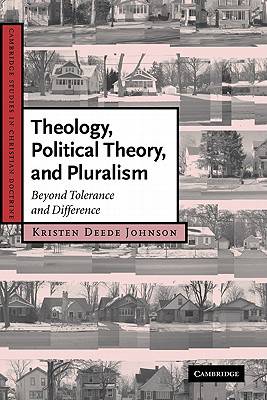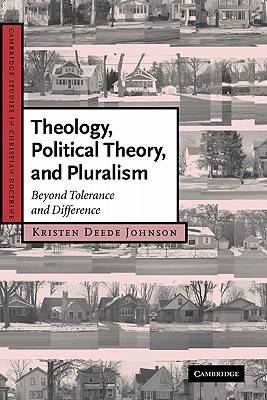
- Afhalen na 1 uur in een winkel met voorraad
- Gratis thuislevering in België vanaf € 30
- Ruim aanbod met 7 miljoen producten
- Afhalen na 1 uur in een winkel met voorraad
- Gratis thuislevering in België vanaf € 30
- Ruim aanbod met 7 miljoen producten
Zoeken
€ 73,95
+ 147 punten
Uitvoering
Omschrijving
How can we live together in the midst of our differences? This is one of the most pressing questions of our time. Tolerance has been the bedrock of political liberalism, while proponents of agonistic political thought and radical democracy have sought an answer that allows a deeper celebration of difference. Kristen Deede Johnson describes the move from tolerance to difference, and the accompanying move from epistemology to ontology, within political theory. Building on this 'ontological turn', in search of a theological answer to the question, she puts Augustine into conversation with recent political theorists and theologians. This theological option enables the Church to envision a way to engage with contemporary political society without losing its own embodied story and practices. It contributes to our broader political imagination by offering a picture of rich engagement between the many different particularities that constitute a pluralist society.
Specificaties
Betrokkenen
- Auteur(s):
- Uitgeverij:
Inhoud
- Aantal bladzijden:
- 290
- Taal:
- Engels
- Reeks:
- Reeksnummer:
- nr. 15
Eigenschappen
- Productcode (EAN):
- 9780521154680
- Verschijningsdatum:
- 24/06/2010
- Uitvoering:
- Paperback
- Formaat:
- Trade paperback (VS)
- Afmetingen:
- 152 mm x 229 mm
- Gewicht:
- 426 g

Alleen bij Standaard Boekhandel
+ 147 punten op je klantenkaart van Standaard Boekhandel
Beoordelingen
We publiceren alleen reviews die voldoen aan de voorwaarden voor reviews. Bekijk onze voorwaarden voor reviews.











